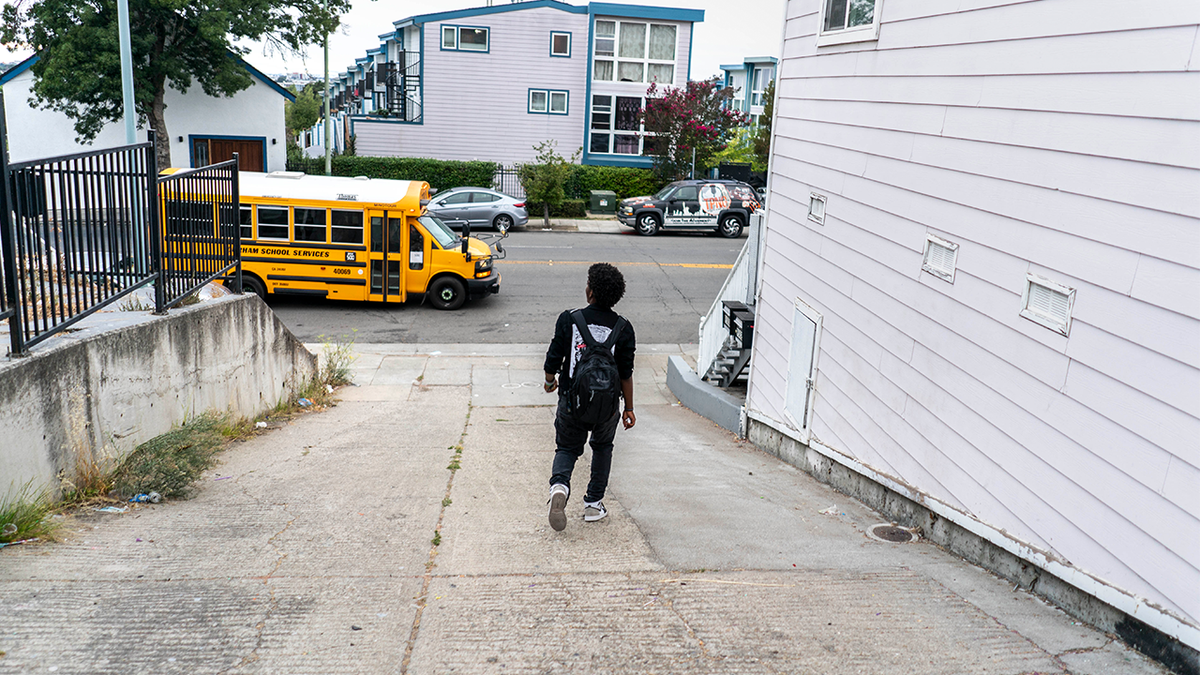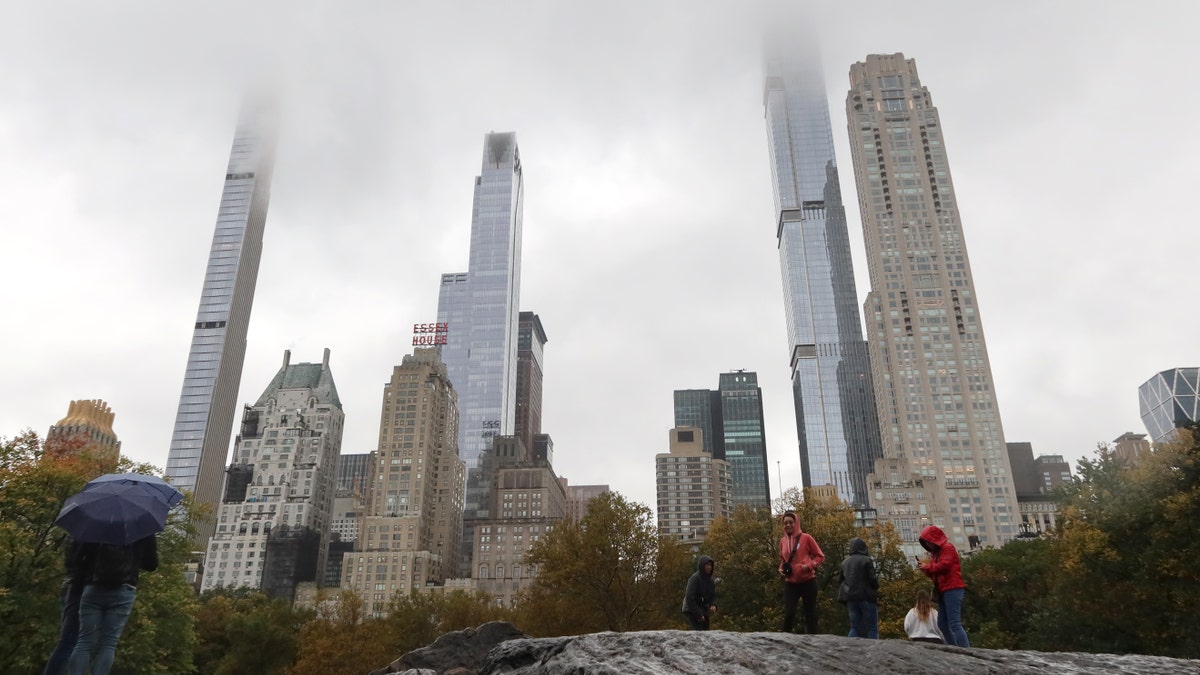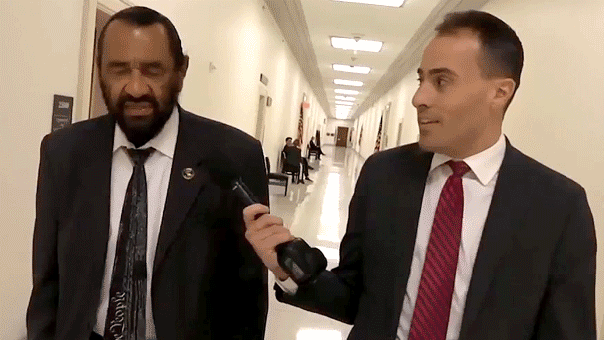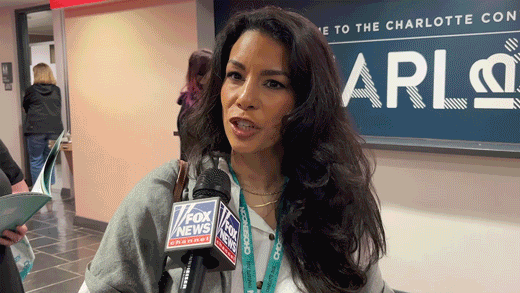Declining birth rates happen in prosperous nations: Ashley St. Clair
The Babylon Bee's Ashley St. Clair discusses the declining birth rate in America and the growing trend of being unmarried without kids on ‘Jesse Watters Primetime.’
America’s major cities are increasingly childless, an ongoing trend that was only exacerbated by the emergence of remote work during the COVID-19 pandemic in 2020. In addition, spiking crime rates, increased cost of living and rising housing prices have pushed families out of U.S. metro areas, according to Manhattan Institute fellow Robert VerBruggen, who conducted a report that measured the family-friendliness of America's cities based on the data of 200 metro areas.
VerBruggen's research looked at which metro areas have the most children, where families with children choose to move and how metros area fare based on measures of well-being such as educational achievement, social mobility, social capital and child poverty. His research concluded that urban living can be made more appealing to families through increased educational choice and decreased cost of living.
"A pandemic, a crime wave, and a growing ability of knowledge workers to do their jobs without living in urban centers have only continued the decline of children’s presence in cities, especially dense inner cores," VerBruggen wrote.
The data tool, which allows readers to see how each of the 35 variables he measured correlate with all the others found that cost of living emerged as the overwhelming reason for why certain metros areas attract more family migration. His findings also show an abundance of children in the middle of the country with noticeable stretches of "child-starved" regions on the coasts.
"As people become richer, families especially want more space, so they tend to go places where they can get more space and tend to leave more and more dense inner city areas," he explained. "Another dynamic that's come out since the pandemic has been that the rise of remote work … essentially if you have the ability to work from anywhere, those forces that were pushing people into cities kind of weakened a bit."

As a result of the pandemic, fewer families need to be in major cities for jobs that can now be done remotely. (Getty Images)
"A lot of people moved to cities because that's where jobs are, cities have these really huge economic centers where all this economic activity takes place and if you can take part in that remotely without living there, that gives you other options that you didn't have before," he added. "I think that really accelerated the trend toward having fewer or fewer kids in dense cities."
VerBruggen explained that if someone enjoys living in a big city, values their single life and feels like they have to leave the city because it's either too expensive or because the environment is not suitable for kids, it forces people to make a difficult decision.
"My own sort of life journey took me from the suburbs into some really dense areas," he explained. "I lived in New York City for a while, and then as soon as we decided to have kids here, we were out of there."
"I think having cities that are inhospitable to family life, having cities that are really expensive when they don't need to be anywhere [near] that expensive because of the zoning laws, I think that that forces a lot of people to make really difficult decisions over where they live and whether they can have kids while they're there," he added.
He also highlighted education, specifically school choice, as an important aspect of life that allows people to live where they want while also sending their kids to school somewhere they find acceptable.
"If family-size housing is expensive in big cities, so is private school," VerBruggen wrote in the report. "Those wanting good public schools must pay for those, too, because property values partly reflect the right to send kids to the school that the property is zoned to. School closures during the pandemic increased many parents’ sense of frustration and powerlessness over the workings of the schools to which they had been assigned."
DALLAS MAYOR LEAVES DEMOCRATIC PARTY, SWITCHES TO GOP: ‘AMERICAN CITIES NEED REPUBLICANS’
VerBruggen said one consistent through line he found in his research, based on the data of different variables, was the high cost of living which served as a huge driver of "childless" cities. He admitted that urban areas are likely always going to have a higher cost of living when compared to rural areas, but he doesn't believe the cost of living should be as high as it currently is.

VerBruggen explained that the cratering fertility rate is a civilizational level problem that's having a prominent effect on the country's metro areas. (Getty Images)
"They have these district zoning laws and a lot of resistance to changing them to allow more people to live there," he said. "I think if you bring down costs of living in cities, you can bring more families in there because they'll actually be able to afford to live there."
Another factor is the spike in crime across metro areas, especially since 2020, which has had a big impact on people's decision to move out of cities, he said.
CHUCK DEVORE: THE AMERICAN BIRTH RATE IS PLUMMETING, BUT NOT IN SOME STATES
"If you live in a suburb, you can live somewhere that's safe and you can drive your car to other places that are safe," he said. "Whereas if you're living in a dense urban environment, any kind of crime that happens is just far more present to you because it's harder to avoid places where crime is happening, so controlling disorder is important."
VerBruggen also said the cratering fertility rate is a civilizational level problem that is confronting not only big cities, but the whole country, so anything that can be done to make it easier for people to have kids is a good thing.
"America’s overall fertility rate is well below replacement at this point, having fallen during the Great Recession and having never recovered," he wrote in the report. "The inhospitality of big cities to children, despite their attractiveness to young adults, could be one target for policy reforms."

VerBruggen explained that education, specifically school choice, would allow families to live where they want, allowing parents to send their kids to schools they find academically acceptable. (Getty Images)
"One can debate whether a childless city has no future, or whether, instead, generation after generation of bright young people could simply move into big cities and then move out again if and when they settle down," he added. "It seems much more obvious that a childless country has no future—and that having large population centers serve as hubs for childbearing-age young Americans, yet offer few attractive options after those Americans have children, can hardly be helping in this regard. It is very difficult to change fertility rates with government policy, so every possible lever is important."
CLICK HERE TO GET THE FOX NEWS APP
For more Culture, Media, Education, Opinion and channel coverage, visit foxnews.com/media.










































